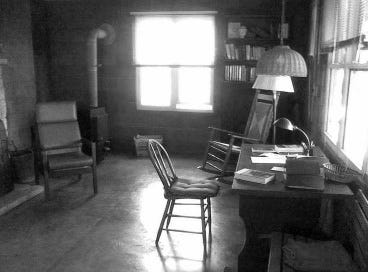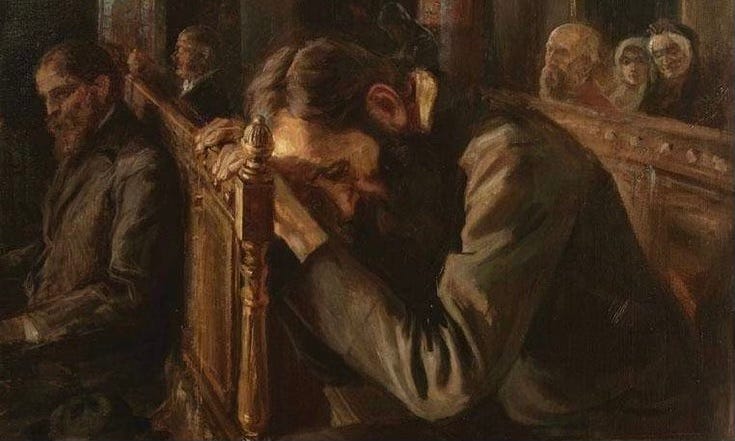Good Friday and Silence
Sandra McCracken and Ben Shive, B.B. King, Michael Giacchino, and silence
Hello darkness, my old friend
I've come to talk with you again
Because a vision softly creeping
Left its seeds while I was sleeping
And the vision that was planted in my brain
Still remains
Within the sound of silence
—Simon & Garfunkel
On this day the ministers enter in silence.
All then kneel for silent prayer, after which the Celebrant stands and begins the liturgy with the Collect of the Day…
Anthem 1
We glory in your cross, O Lord,
and praise and glorify your holy resurrection;
for by virtue of your cross
joy has come to the whole world.
—Book of Common Prayer
On this Good Friday, our Bonus Track focuses on the theme of silence - a difficult thing to do for a music newsletter entry. It’s so good that Ben, Jonathan, and Kody decided to recommend songs (mostly) without words.
What Is by Sandra McCracken and Ben Shive (Ben)
This is a different piece of music. Good for Good Friday. The first 3 minutes swell with a contemplative, instrumental sound. Then, singing enters. At a little over 5 minutes into the song, you sense a change, a noticeable complexity to the strings. This song, to quote Sandra, reminds us “in the fragmentation of our world, it seems we could all use a moment to breathe and to listen.” It comes full circle in the final minute.
*You might even notice a TS Elliot lyric.
Also available on Apple Music.
Blues for Me by B.B. King (Jonathan)
Growing up in Mississippi gave me an appreciation for the blues and for B.B. King, who was born in Berclair, MS. The pain and emotion of this genre can be felt not only through the lyrics but also through the instruments, particularly the guitar. Many well-known blues musicians, like B.B. King, Robert Johnson, and Muddy Waters, are just as much known for their incredible guitar skills as their vocals. Take for instance my choice today and soak it in as B.B. makes Lucille (his guitar) produce anguish in your core.
Also available on Apple Music.
It’s Snowing by Michael Giacchino (Kody)
This song is instrumental but doesn’t exactly exude silence. It is, however, slow, peaceful, and makes me feel happy and sad all at once, which is exactly what the movie Family Stone does to me.
Mixed emotions are welcome on Good Friday.
Also available on Apple Music.
Bonus Track: Good Friday - Silence by Scott Meadows
What if one of the most critical practices for enjoying music is no music at all? I have an interactive or participatory personality, often approaching music for that illusive aesthetic experience which transcends the earthly realm. You may heckle all you want, but my earliest memory of an aesthetic experience in music comes from my mother's CD of Michael W. Smith's Freedom. As I have grown, so has my appreciation of God's goodness, truth, and beauty, as reflected through the imaginative compositions of those made in His image. St. John Chrysostom explains the psychological and spiritual gift of music like this: "Nothing so arouses the soul, gives it wings, sets it free from the earth, liberates it from the prison of the body, teaches it to love wisdom, and condemns earthly life, as the Psalter and psalmody." Despite this beauty, we can easily damage our mindfulness of good music through an over-abundance of it.
T.S. Eliot – poet, essayist, publisher, playwright, literary critic – is well known for his monumental work The Waste Land. However, his most mature work was his final one, composed of four poems, titled The Four Quartets. Later in life, Eliot embraced faith in Jesus Christ, becoming a member of the Anglican Church. His poetry and criticism pivoted to address the changing currents of society, with a particular emphasis on the emergence of modernity. In "Burnt Norton," Eliot laments the modern man's diminishing grip on reality, underscoring the escalation of sensuality and thoughtlessness in an era defined by, "Distraction from distraction by distraction."
Surrounding us are smartphones, iPads, televisions, newspapers, billboards, and, soon, augmented reality glasses, all competing for our attention. The widespread availability of music on various devices has enhanced individualism, shifting musical enjoyment from the communal experience of the symphony hall to the isolation of our dark rooms. Tony Reinke explains how these "competing spectacles" redirect our admiration of the cross of Christ towards the worldly distractions around us. In an age where high Spotify-wrapped numbers are a badge of honor, it is ironic how, amidst the noises of life, we often overlook the beauty that accompanies silence.
Perhaps the reason we wrestle with silence is because it is where every distraction and stimulus are removed. An overwhelming feeling of the existential often accompanies silence. When a man is left alone with his thoughts, he comes face to face with his mortality – and, ultimately, God. Blaise Pascal agrees that, "The eternal silence of these infinite spaces frightens me."
Despite our existential fears, silence and solitude are considered spiritual disciplines in the Christian faith. Why would those who have placed their faith in Jesus Christ not want to see Him face-to-face, free from distraction? Thomas Aquinas writes, "In the tranquility of silence, the soul may ascend closer to God, where words fall short, the profound mysteries of the divine become more perceptible." Silence is one of the paradoxical intersections of time and eternity, where humanity may hear the timeless song of the cosmos crying, "Holy, holy, holy, is the Lord God Almighty!"
I believe in a tightly-knit connection between distraction and spiritual warfare. In The Screwtape Letters, Lewis uses allegory to describe how Wormwood is advised to use every means at his disposal to divert his "patient" from engaging in silence, Bible reading, prayer, or fellowship with other believers. Likewise, our adversaries in the domain of darkness aim to keep believers (and non-believers alike) constantly aware of the guilt and shame that stem from their sins. An oversaturated life of music can, at times, be used to abate those little condemning voices.
Now, you might be wondering, what does this discussion on silence have to do with The Music Swap when our focus is supposed to be on music? I propose that the practice of silence trains the psyche toward attentiveness. At the heart of abstinence or temperance is the deliberate choice of the negative, which will later enhance our appreciation of the positive.
I’m a huge fan of specialty coffee, having implemented a pour-over into my daily morning routine. Very little rivals the initial taste of a skillfully roasted, excellently sourced single-origin coffee. Yet, as with any pursuit, the continual overconsumption of specialty roasts often leads to a diminished appreciation of them. There is no better reminder of what I’ve taken for granted than a Styrofoam cup of lousy church coffee.
It is the same with music. When practiced correctly, mindful silence can renew minds overwhelmed by naturalism, materialism, and distraction upon distraction, guiding them toward a state of childlike curiosity which is foundational to philosophy, religion, and the appreciation of beauty. Silence helps us refocus on the miraculous reality that humans even have the capability to create music.
If you aren’t used to practicing silence and solitude, Good Friday is a perfect time to do so! During Lent, churches that follow the liturgical tradition emphasize confession, repentance, and silence, reflecting on how their sins instigated Christ's crucifixion. The Book of Common Prayer outlines this most solemn day as "marked by fasting, abstinence, and penitence," while numerous churches abstain from musical instruments to "focus on Jesus and the significance of His Cross." These Good Friday liturgies practice an extended silence between each canticle and prayer. This silence might be unsettling for traditional evangelicals, yet it might just be the balm they need to quiet their minds and experience their Triune Creator anew.
Revisiting The Four Quartets, Eliot observes how, “The whole earth is our hospital,”(including music) where we experience “the wounded surgeon’s … bleeding hands” and sense “the sharp compassion of the healer’s art.” As we approach this sacred weekend, I urge you to embrace silence as you would fasting: a relinquishment of distractions where “the dripping blood [is] our only drink, the bloody flesh our only food … in spite of that, we call this Friday good.”
Enclosed is a Good Friday playlist that features periods of silence, worship, and prayer, and a contemplative playlist I’ve used daily for three years.
—
Scott Meadows is a Kansas City native obsessed with classical theology, beauty, and creativity. He has an MDiv from Midwestern Baptist Theological Seminary and serves as the Editor of Media for Credo Magazine and as Marketing & Communications Coordinator at John Knox Village. Scott’s favorite three concerts have all been intimate house shows including Levi the Poet, Towr’s, and Pedro the Lion.
—
Thank you for reading today’s Swap. We hope you engage with the silence of Good Friday.
-TheMusicSwap





"Silence
Music's original alternative"
-Todd Snider
Credit: Chris Smith for the reference. https://www.youtube.com/watch?v=lYm8HotzmSw
Originally we posted the wrong B.B. King version of the song Jonathan wanted to highlight. The post is now updated with the right song.